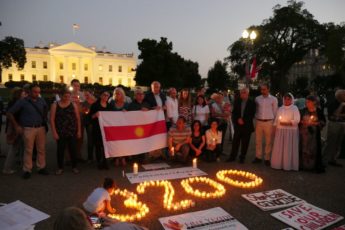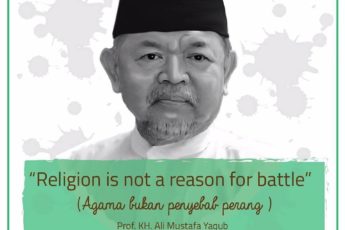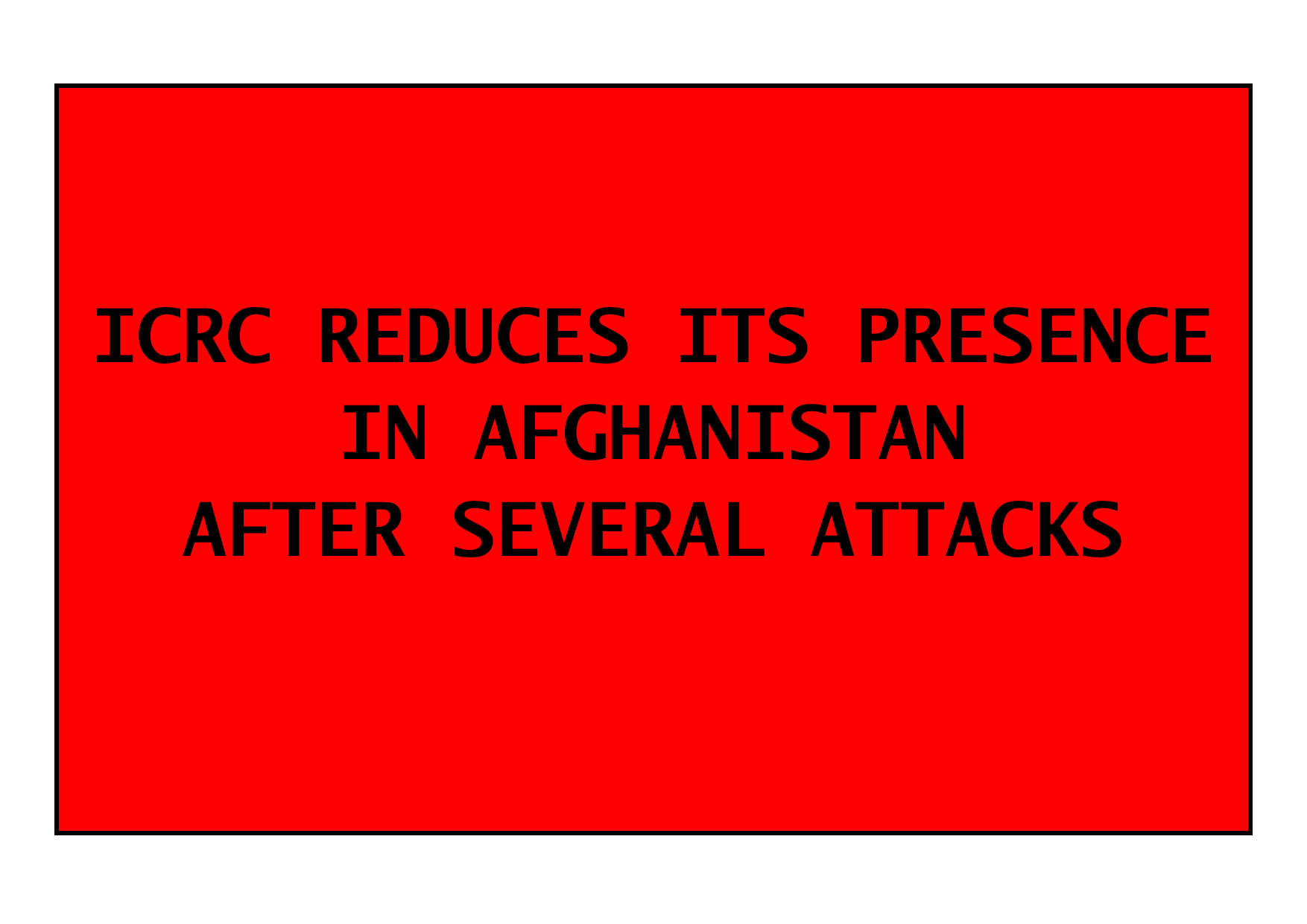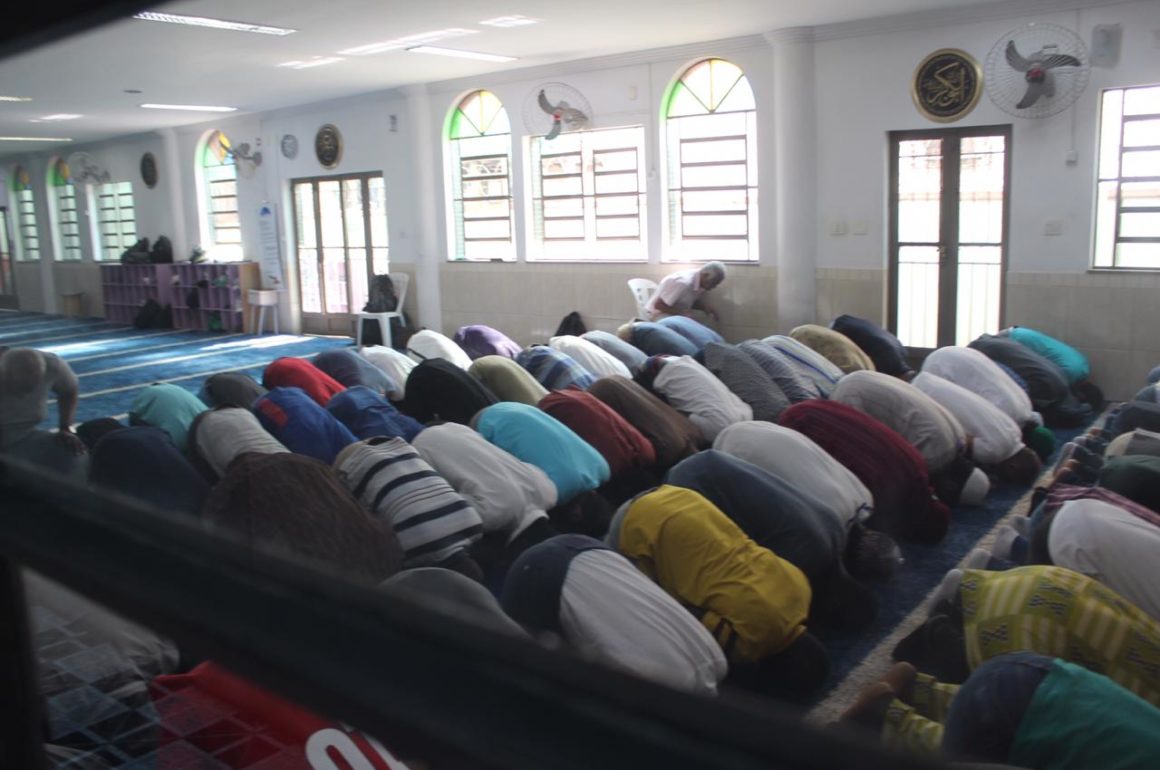
According to the Hate Map of Brazil published by Words Heal the World, Brazil recorded 220 crimes motivated by religious intolerance in 2018. Even though Islamophobia is not frequently on the news in Brazil as cases of religious intolerance towards Afro-Brazilian religions, misconceptions about Islam also exist in Brazil.
I was raised in a Catholic school and during fieldwork for university, I had the opportunity to visit a Mosque in Rio de Janeiro. The experience was so unique that it has driven me to make an effort to break some of these misconceptions.
The El Nur Mosque is one of the main mosques in Brazil. The place, very well maintained and organized, is a symbol of love and resistance. Always very receptive, Muslims welcome all visitors with peace and harmony. It was in this environment that I entered the mosque and met Fernando.
Gabriel J.–What’s your name?
Fernando Mendes– My name is Fernando Mendes, I am the communications advisor of the Mesquita El Nur.
GJ–How did your story start here at the El Nur Mosque?
FM– I converted to Islam in 2005, I graduated in Journalism, then, in 2009, I was invited to work in the communications sector here at the Mosque.
GJ–Firstly, in your view, what are the main values that you would like to be recognized by society as representatives of Islam?
FM– Islam preaches what every religion considers positive, like loving your neighbor, gratitude, harmony, balance, and, of course, cherishing a healthier life.
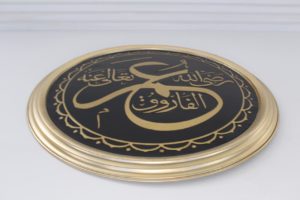
GJ–What are the wrong terms that you consider related to Islam?
FM– The main ones are: the relationship created between Islam and terrorism and the myth of women´s submission.
GJ– One of the things I realised while studying about Islam and the Arab culture is that people tend to think they are the same thing. How is it possible to differentiate the Muslim culture from the Arabic one?
FM– It is necessary to differentiate culture from religion. It is easy, the Muslim woman dresses modestly, and belly dancing is always associated with her. So how is it possible? Belly dancing is a feature of Arab culture. Many Arabs are Muslims, but not all Muslims are Arabs. Among the 1.5 billion people from the Islamic religion, only 18% of that amount is made up of people of Arab origin. The hookah itself, which is of Arabic origin and people always confuse it with our religion, but in Islam, we can neither drink nor smoke. Arabic culture is more an ethnicity that connects with our religion like many others throughout the world.
GJ–After the attack on the World Trade Center in 2001, there was increasing stigmatization of Islam, associating it with terrorism. How is the Muslim understanding of terrorist attacks perpetrated by groups such as al-Qaeda and ISIS?
FM-We repudiate all kinds of extremist views, they are people who have very different objectives, such as the financial issue that is always linked to interests in the Middle East. This stigmatization was mainly due to a lack of information about the main precepts of Islam. After ISIS (Islamic State of Iraq and Syria) emerged – it is not an Islamic State because it is not recognized as a state and it is not Islamic – the most prestigious and wise men of Islam signed a manifesto together, describing, point by point, all aspects that they condemned in the ideology preached by terrorist groups. We vehemently repudiate all of this.
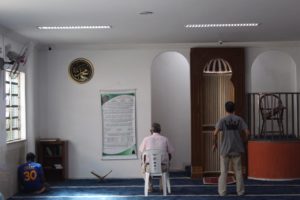
GJ– The hijab is frequently perceived as controversial in countries whose majority is not Muslim. What is the Muslim community’s perception of it in Brazil?
FM– So, there are some issues here in Brazil that are going to be more difficult to practise than in countries like Jordan or Arab Emirates where the whole society is already shaped around religion. We even know that if you are a minority and practice, even though you are in adverse conditions, we believe that you will be much more rewarded by God for being practicing. As far as the veil is concerned, it is valid anywhere. But everything in the Islamic religion is about free will. The person has to follow the religion voluntarily. If the individual lives in a place that has greater difficulties, and she does not wear her veil, she is still a Muslim, but she is breaking a rule, but then this is her relationship with God, no one can force her to use. She has to understand the motivation behind the veil. She has to understand that wearing the veil is an act of great responsibility. But again, this is entirely between the woman and her relationship with God.
GJ-The Koran, the holy book of Islam, promotes peace. But it also preaches the fight against infidels. Is there a contradiction?
FM-First, there is a lot of misunderstanding because of translation. But getting to the heart of the matter, in Islam we understand it as a complete code of life. God gave rules and guidelines, God knows that war has existed since the world is the world. Islam gives guidance on all the fundamental issues of the human being. For example, Islam only allows you to participate in a conflict, in a situation, only in self-defense. I can never attack you, nor can a state attack another, but if you attack or invade my state I can have a violent response, but in the same proportion that I was attacked and always cherishing self-defense. Even before the Geneva Conference, Islam already came up with definitions of fair combat, giving a set of rules to be followed, such as not attacking religious temples, not attacking at night, not attacking children and the elderly. These are several rules that Islam has already made. That is why the study of the Koran must be done by teachers so that they know the context to clarify their students because the use of verses outside contexts can lead to fanaticism.
GJ-According to the International Centre for the Study of Radicalization linked to the British university King´s College, more than 40,000 young people from 110 countries have been recruited by the ISIS. How is it possible to prevent radicalization in light of the teachings preached by Islam?
FM– This work that we are already doing, which is presenting Islam´s basic precepts to students at universities and schools, is very important. Presenting Islam to non-Muslims deconstructs myths about our religion and it demands great effort from Muslim clerics because they must use their words very carefully to avoid any kind of misunderstanding.
By Gabriel J. (UFRJ – Brazil)


